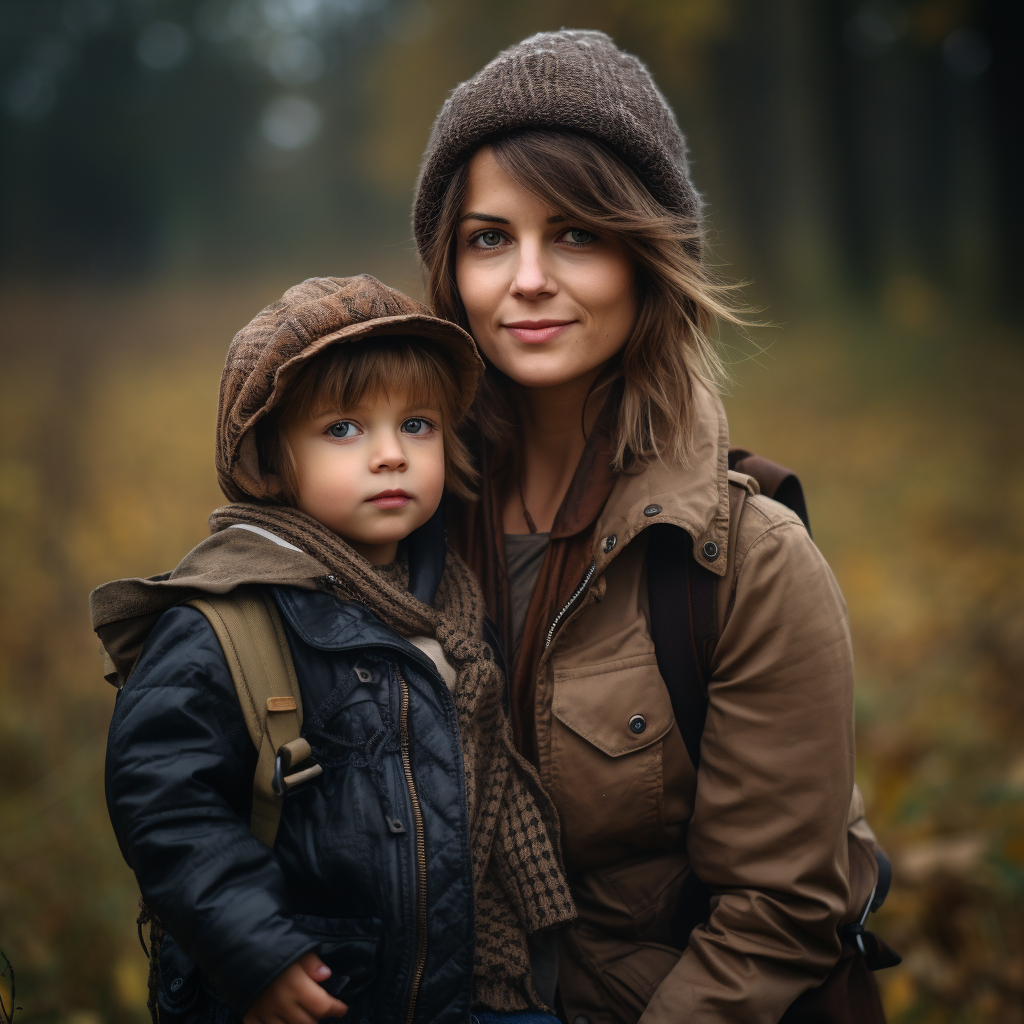In the hidden luxury of Green Garden Anatol and Marcin uncover a world beyond their garden’s embrace. Guided by a mysterious map, they forge a connection that transcends barriers, language, and enmity with a Russian boy.
Yulia, at the age of twenty-five, found herself a stranger to her homeland, having taken the desperate journey from the ravages of Eastern Ukraine’s Russian invasion with her young son, Anatol, a boy of merely five. The path led them to Poland, where doors opened for her in a well-to-do household in a suburb of Warsaw. There, she served as a nanny, her demeanor filled with a dignified appreciation, yet shadowed by a resolve born of hard experience. It was her way of forging a sanctuary for young Anatol in a world that had been torn asunder.
In the new home, Anatol found companionship in Marcin, the Polish family’s son of the same tender age. Their connection was immediate and profound, each finding in the other a shared language that only children seem to possess. Their days were spent in joyful exploration of the gardens, their laughter a soothing melody under Yulia’s watchful yet loving gaze.
And yet, there existed in Yulia’s heart a divide that time and distance could not bridge. Back in Ukraine, her husband Mykola had chosen a path of valor, staying behind to fight in the war against Russia. Every ring of the telephone was an event, a leap of the heart followed by moments of connection filled with love, relief, and the unspoken fear that lingered always in the shadows.
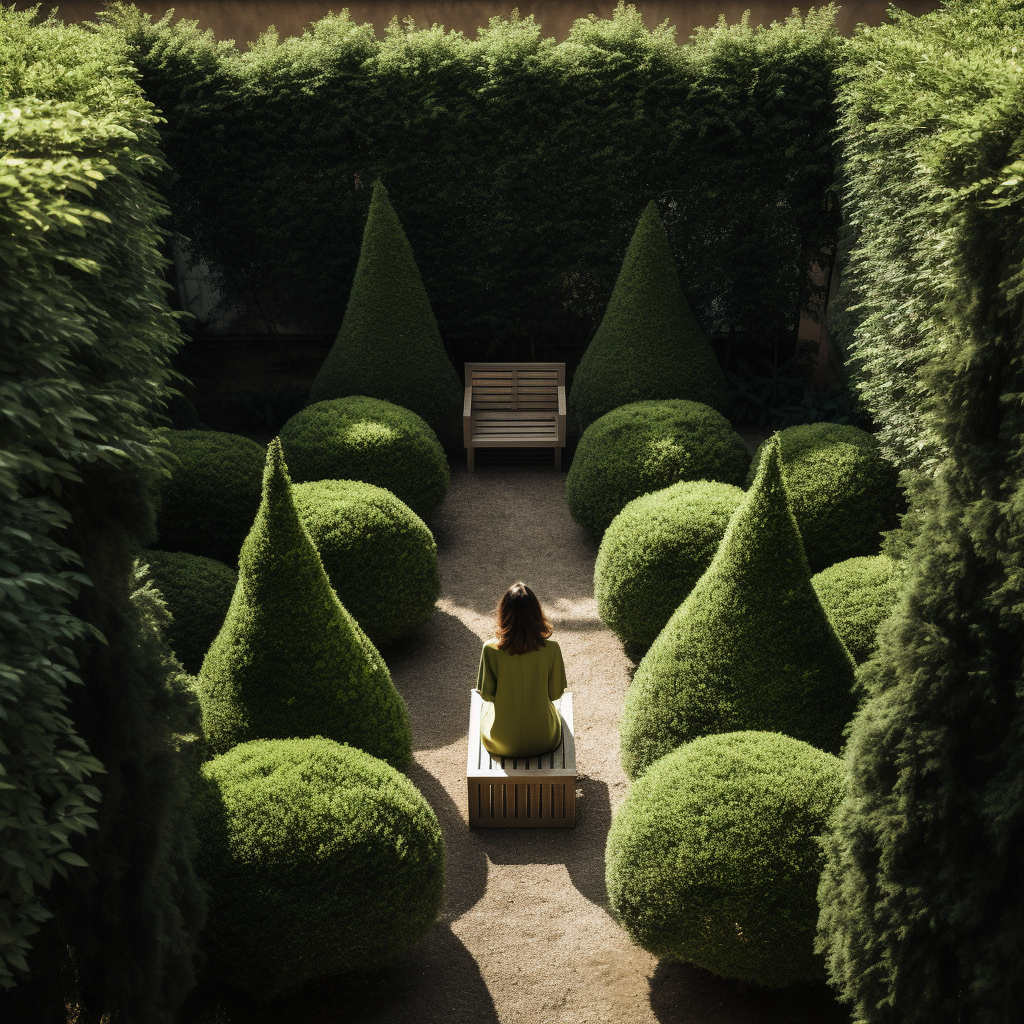
In those hours, when no word came from Mykola, Yulia’s world would become clouded by uncertainty. The not knowing would eat at her, a relentless worry that gnawed at her soul. And yet, with quiet courage, she moved through each day, her responsibilities as a nanny blending with her deeper struggle, as she found her way in a land that was foreign, yet had become a refuge.
One particular afternoon, the lively pursuit of Anatol and Marcin through the verdant garden could not keep Yulia’s attention. She was settled in her usual spot on the patio, but her thoughts were pulled away by faint murmurings from beyond the thuja-lined barrier. The Russian words that drifted over were a call from a past she had left, but not forgotten.
Moved by something she could not name, Yulia shifted her table closer to where the voices seemed to beckon. Russian was a language she knew well from her youth in Eastern Ukraine, and as she lent herself to the conversation, she discerned the speakers’ connection to the Russian Embassy in Warsaw. The words were not consequential; it was their origin that intrigued her. They belonged to the wife of a diplomat, a woman wrestling with a solitude that mirrored Yulia’s own, albeit in a different shade.
Empathy filled Yulia’s heart as she listened to this Russian woman. Though their worlds stood at odds, the shared longing for companionship, a desire for a life beyond the gilded walls of Green Garden, united them.
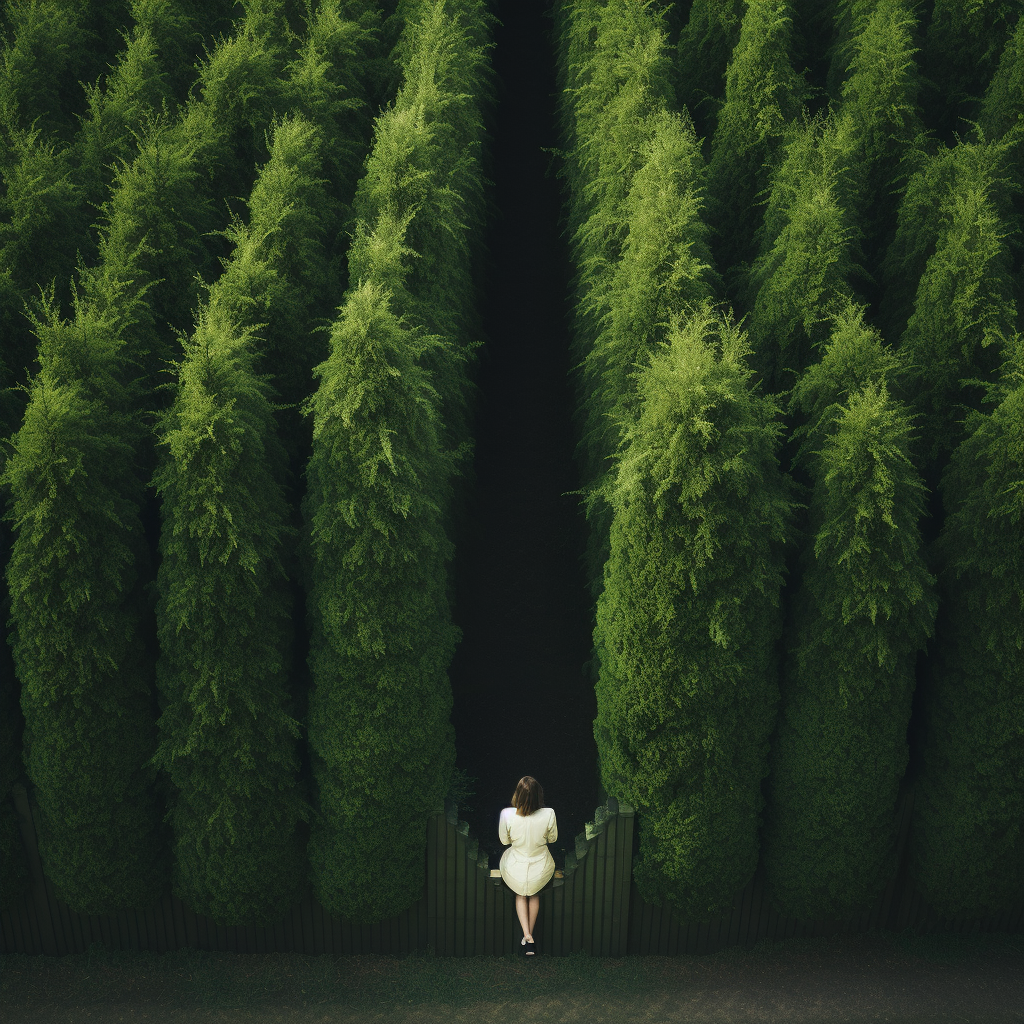
This revelation led Yulia to reflect on the curious irony of her situation. A Ukrainian refugee, she now found herself living beside those from the very nation that had driven her from her home. The thought was unsettling but also tinged with a peculiar resonance. They were both confined, albeit differently, within this secluded paradise.
As the days wore on, the conversations continued to reach Yulia. She did not seek to eavesdrop but was drawn by a yearning to understand, to glimpse a shared loneliness in the words that carried over the fence and the line of thuja trees. These fragments became a silent dialogue, an unspoken connection between two women, each trapped in her circumstances, each reaching out across a divide that was, perhaps, not as wide as it seemed.
On a day kissed by the sun, the game of football that had captivated Anatol and Marcin was interrupted when the ball was sent into the thujas. In their chase, they stumbled upon a small gap between the trees, revealing a mesh fence, another row of thujas, and a secret world beyond.
Their young hearts filled with adventure, they peered through the tiny opening and were greeted by the sight of a boy their age, playing with a woman. Startled by this unexpected discovery, they retreated back into the known bounds of their garden, their minds awash with wonder and trepidation.
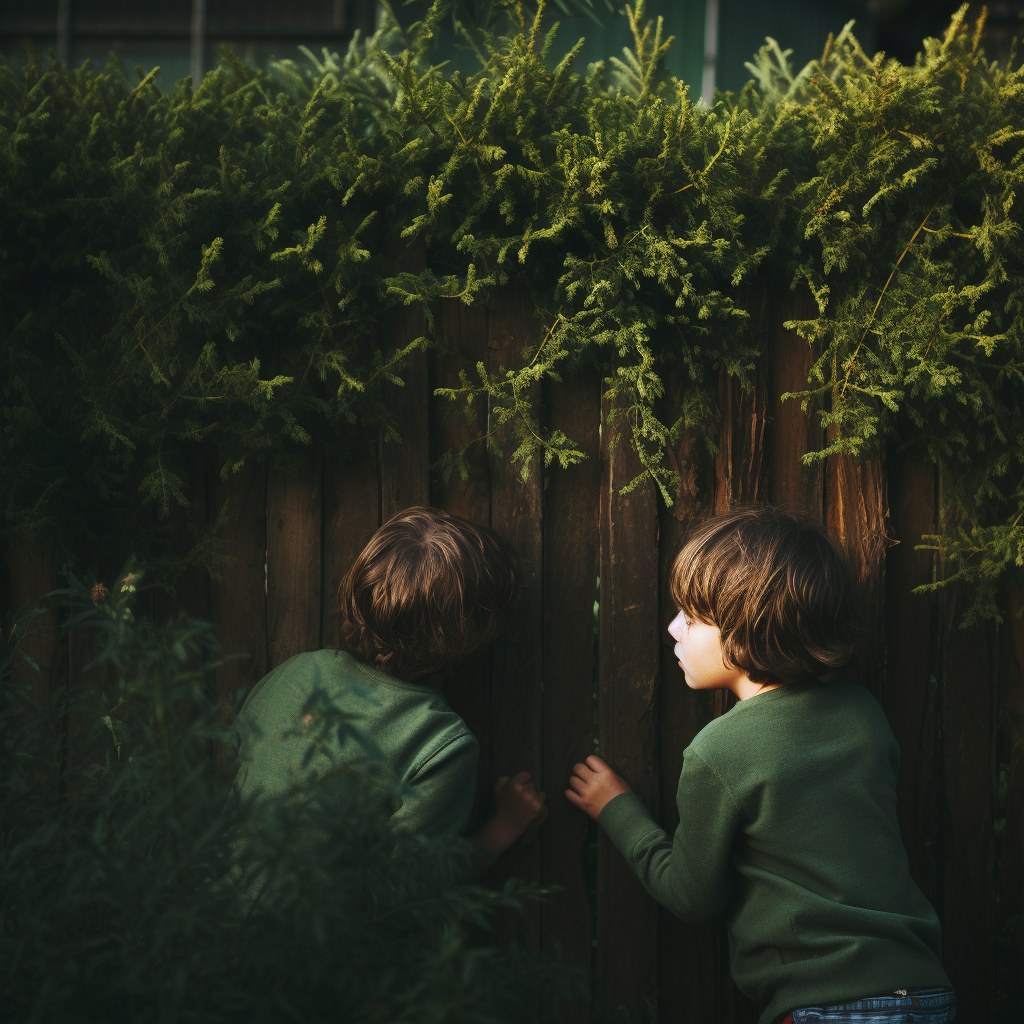
But curiosity, that faithful companion of youth, drew them back to the gap the next day. This time, they saw the boy again, and Anatol, with ears attuned to the language, whispered, “The boy speaks Russian.” Marcin’s eyes widened. Russian, the language of their perceived foes, had found its way into their secret world. It lent a texture of intrigue and complexity to their innocent explorations.
Their initial unease did not deter them from returning to the secret window. Every day, as if drawn by an invisible force, they found themselves at the gap, watching the Russian boy with his mother. Their viewings became a quiet ritual, a hidden adventure that held both excitement and mystery.
Through Anatol’s translations, they listened to the laughter, observed the interactions, and glimpsed into a world that was at once near and far. Questions bloomed in their minds, along with a growing awareness of the world beyond their garden’s embrace.
One day, as the boys were observing their newfound fascination, they were surprised to see the Russian boy looking back at them. He didn’t seem alarmed; instead, he put a finger to his lips, silently signalling for them to keep quiet. Anatol and Marcin nodded in silent response and retreated back to their garden, a flurry of whispered questions and speculations filling the air as they left.
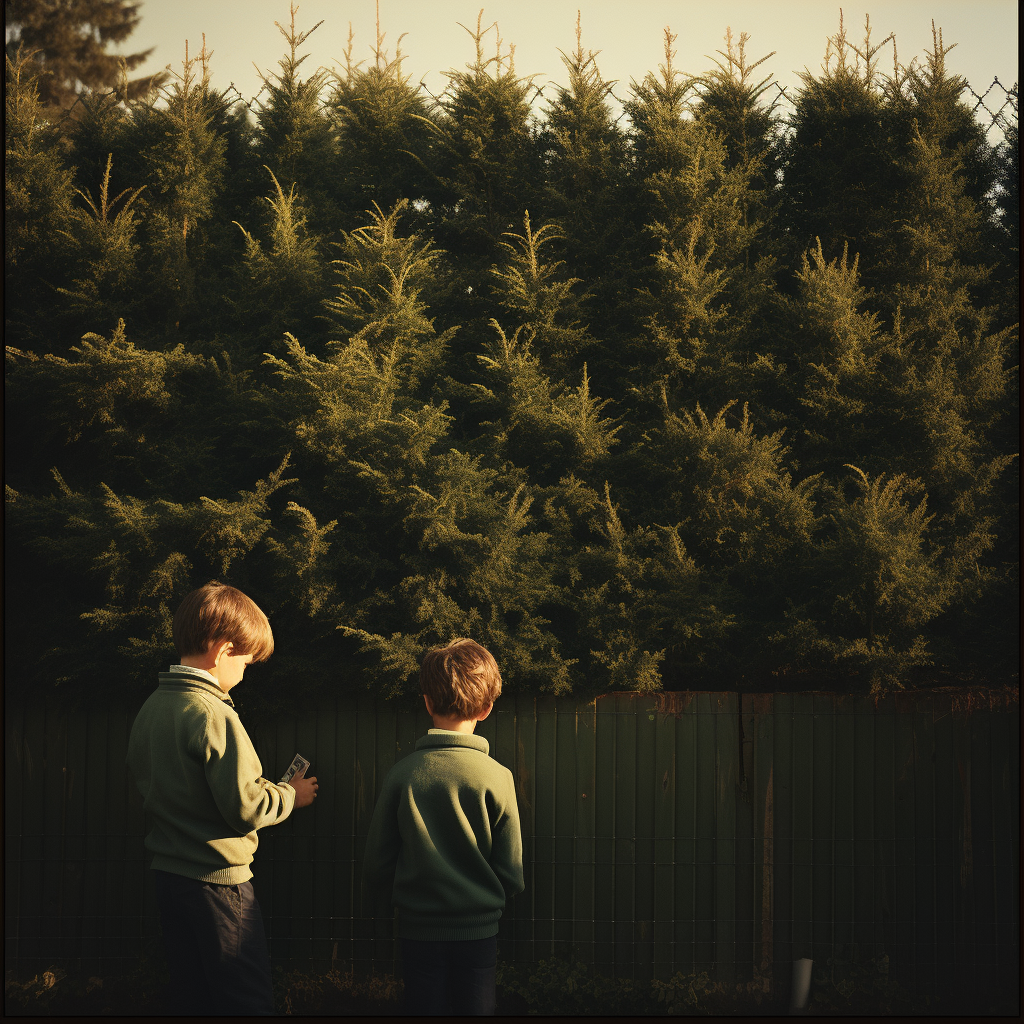
The next day, their curiosity led them back to the gap. This time, however, they found a small piece of paper tucked into the mesh fence. With careful hands, they retrieved the paper and unfolded it. It was a drawing filled with lines, arrows, and intricate details. In the bottom left corner was a signature – Dima. The boys now had a name to assign to the face they had been observing.
The paper, it turned out, was a map, directing them to continue towards the end of the garden along the mesh fence behind the thujas. The boys, fuelled by a sense of adventure, were unable to resist the allure of this new mystery.
With a shared look of determination, they began to follow the path drawn out for them. The rustling leaves and the chirping birds were their only companions as they moved carefully along the edge of the garden, their hearts pounding with the thrill of the unknown.
Their hands traced along the mesh fence, their eyes scanning every detail of the map as they navigated the hidden corners of their familiar garden. It felt as though they were on a grand adventure, the quiet monotony of their daily life replaced with a sense of anticipation and camaraderie.
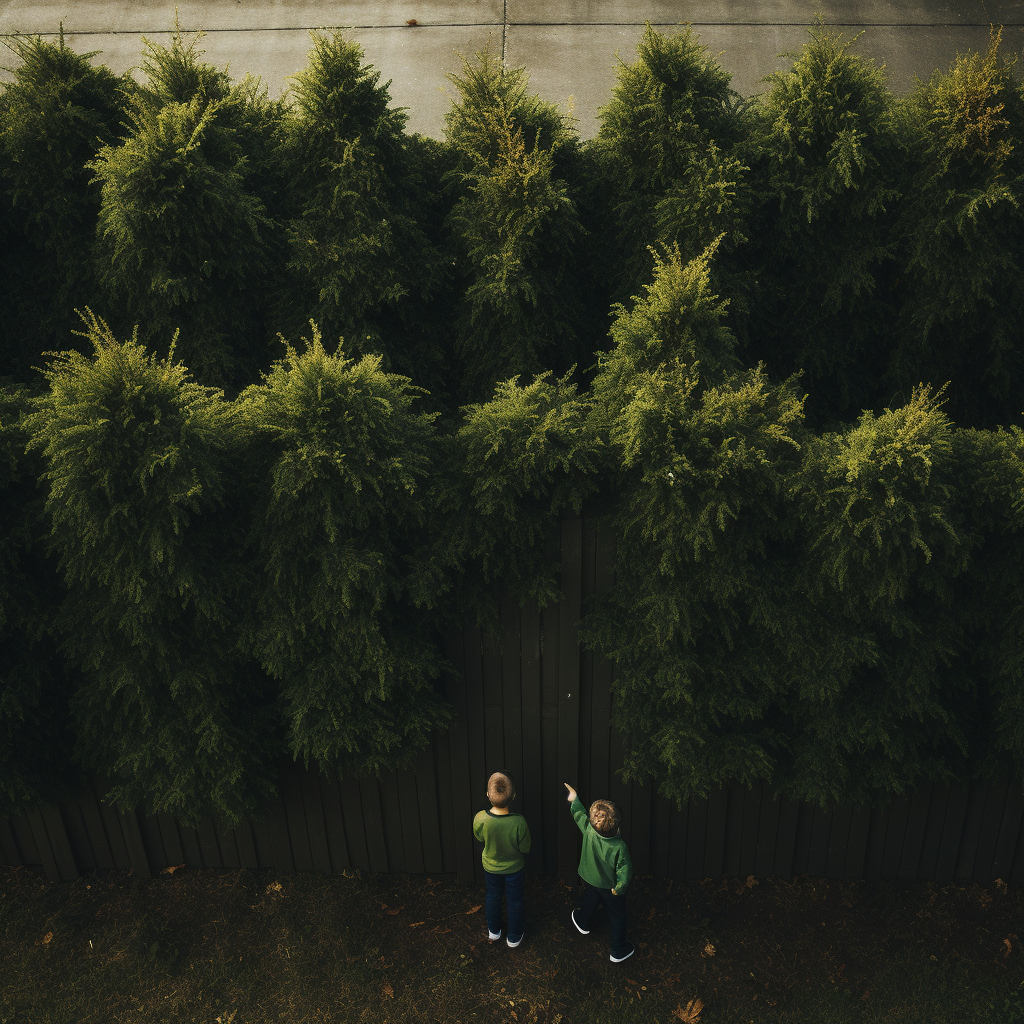
Finally, after traversing through a maze of greenery and fence, the boys arrived at the spot marked with a big ‘X’ on the map. It was a sizeable gap in the mesh, a forgotten spot nestled between the two gardens. It seemed as though it had been originally set aside for a secluded shed, a project abandoned long ago. On both sides, the boys were shielded from prying eyes by thick rows of thujas.
Upon discovering the secret location, Anatol and Marcin decided to leave a message for Dima. They placed the map back in the gap in the fence, anchoring it with a small stone to prevent it from fluttering away with the wind. It was their silent affirmation that they had found his secret location.
Unfortunately, they had nothing to write or draw with, but they hoped the presence of the map in the right spot would convey the message. Having done all they could, they left the place with a mix of excitement and apprehension.
Throughout the following day, the thoughts of the secret spot and Dima’s mysterious map filled their minds. They spoke in hushed whispers, trying to make sense of this curious adventure that had somehow breached the walls of their isolated gardens.
The next day, both boys, drawn by a shared sense of mystery and adventure, made their way back to the secret spot. There was a glimmer of hope in their eyes, the hope to meet Dima, the boy from beyond the fence. As they navigated the familiar path, their hearts pounded with anticipation.
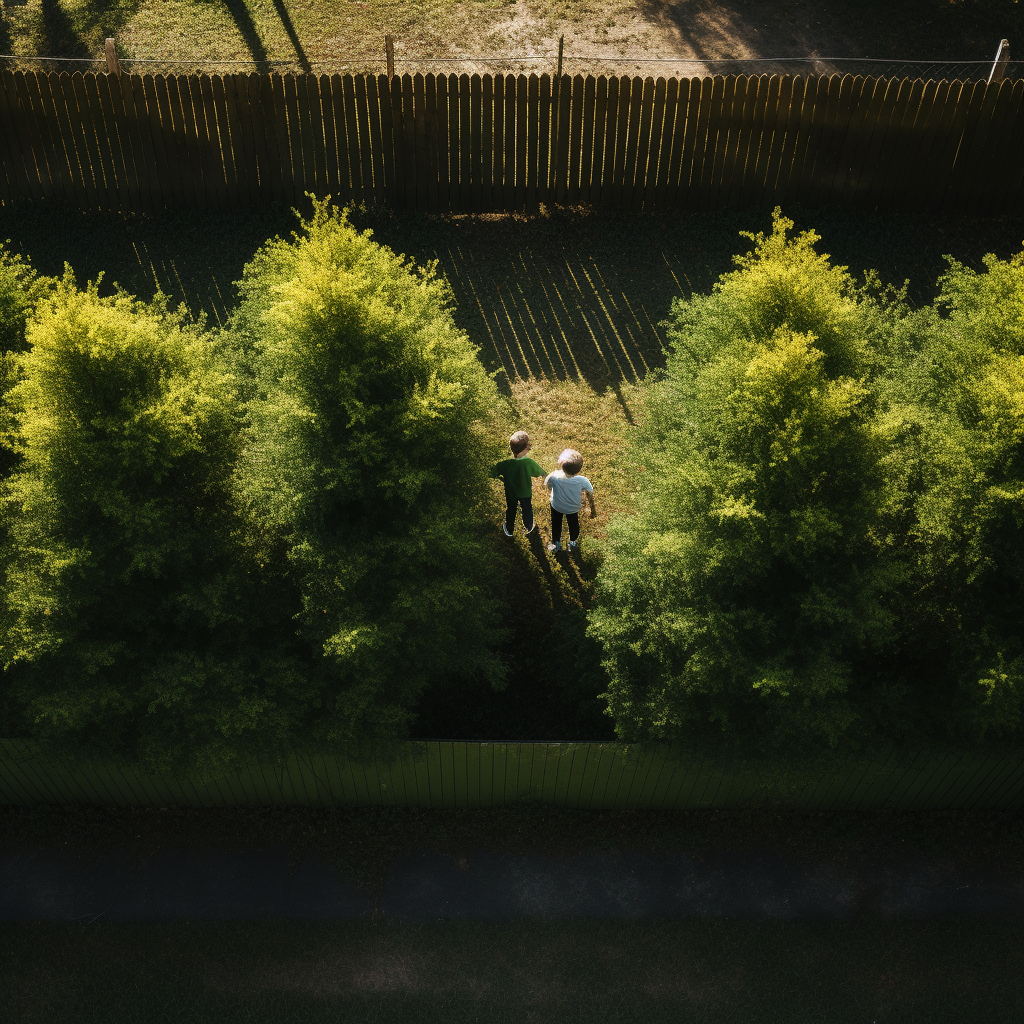
After a few moments of waiting in the hidden nook, a soft rustle from the opposite side of the fence caught their attention. A boy, around their age, emerged through the thujas on the other side. His eyes sparkled with curiosity and a hint of caution. This was Dima.
“Hello, I’m Dima,” the boy announced, offering a shy wave.
“Hi, I’m Anatol,” responded Anatol, waving back.
“And I’m Marcin,” chimed in Marcin, smiling broadly.
There was an awkward pause as the boys searched for the right words. Anatol, realizing Dima’s hesitant use of English and Marcin’s unfamiliarity with Russian, stepped in.
“I can translate,” he offered. “I understand both Russian and Polish.”
Dima nodded, relieved. And thus, the dialogue began, with Anatol serving as the bridge between the three boys. As they started to converse, the topic of their countries inevitably came up.
“You’re from Russia, right?” Anatol asked Dima.
Dima nodded, “Yes, and you are from Ukraine?”
Anatol affirmed, then explained, “Marcin is Polish. We’re here because of the war in my country.”
A look of understanding dawned on Dima’s face. “Yes, the war,” he said quietly. “My dad talks about it sometimes.”
The boys, sitting in their hidden haven, began discussing the war. They were young, yet the harsh realities of the world had reached them, seeping through the lush greenery of their secluded gardens. They shared what they knew, what they had overheard from adults, and what they feared.
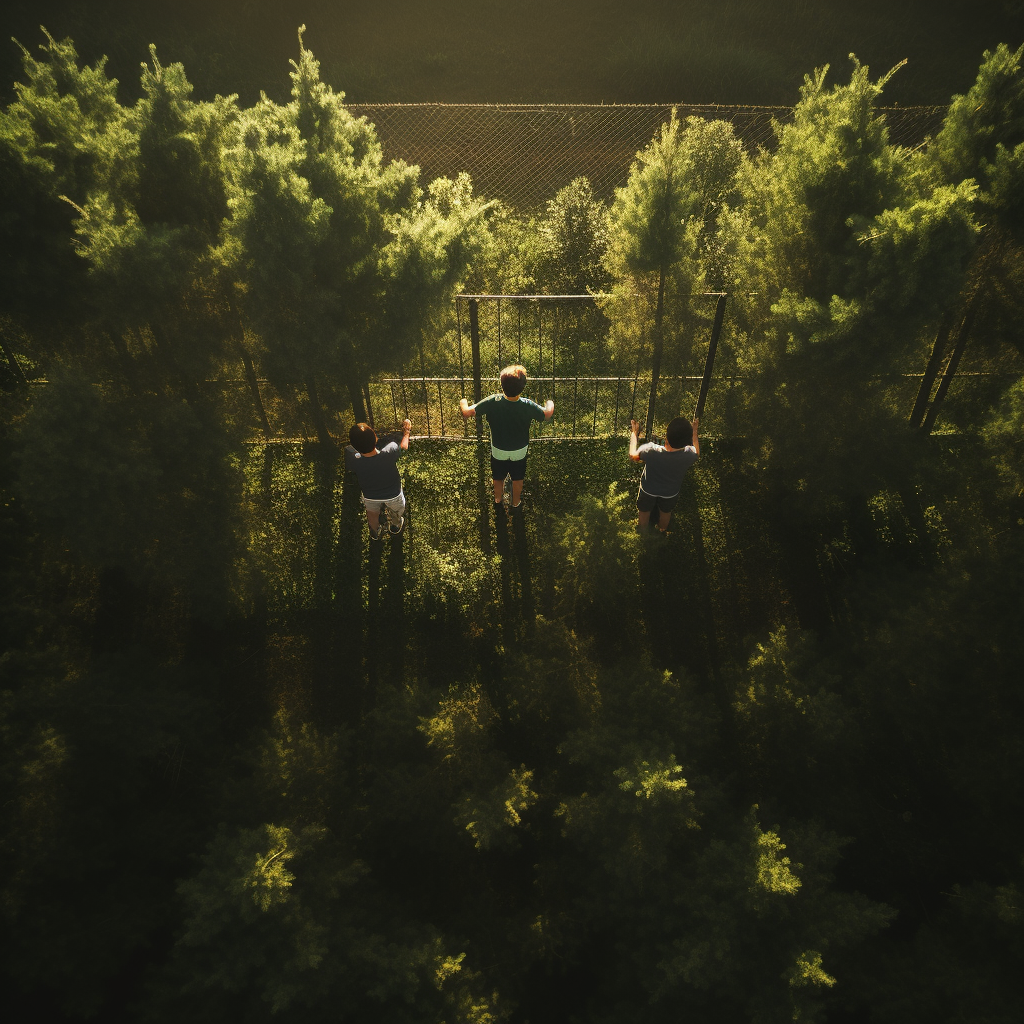
Despite their different origins, their language barriers, and the war between their countries, they found common ground in the gap behind the thujas.
As the discussion deepened, the war’s bitter undercurrents began to surface.
“But it’s your country that’s attacking us,” Anatol suddenly burst out, his young voice shaking with emotion. “In Ukraine, they’re killing children, innocent people.”
Dima’s face hardened, the innocence momentarily replaced by a defensive anger. “No! It’s your country that wants to attack us,” he retorted. “Russia is only defending itself.”
For a moment, the boys fell silent, the only sounds being the rustling leaves and distant hum of the city. They were grappling with a conflict far bigger than themselves, but the stories they had heard, the narratives that had been ingrained in their minds, couldn’t be more different. They were each a reflection of the perspectives they were exposed to at home, the conflicting versions of the same event.
A thick silence hung in the air following the heated exchange. The tension was palpable, creating an invisible barrier stronger than any fence. The leaves rustled mournfully overhead, as if echoing their confusion and sorrow.
Marcin finally broke the silence, his voice measured and thoughtful. “I think we are too young to solve this,” he said softly. “It’s bigger than us. Maybe it’s best if we just… leave it.”
Anatol and Dima locked eyes, the shared understanding apparent in their gaze. The gravity of the situation had dawned upon them, too. Their innocent world had been overshadowed by an adult conflict, the echoes of a war fought far from their quiet neighbourhood.
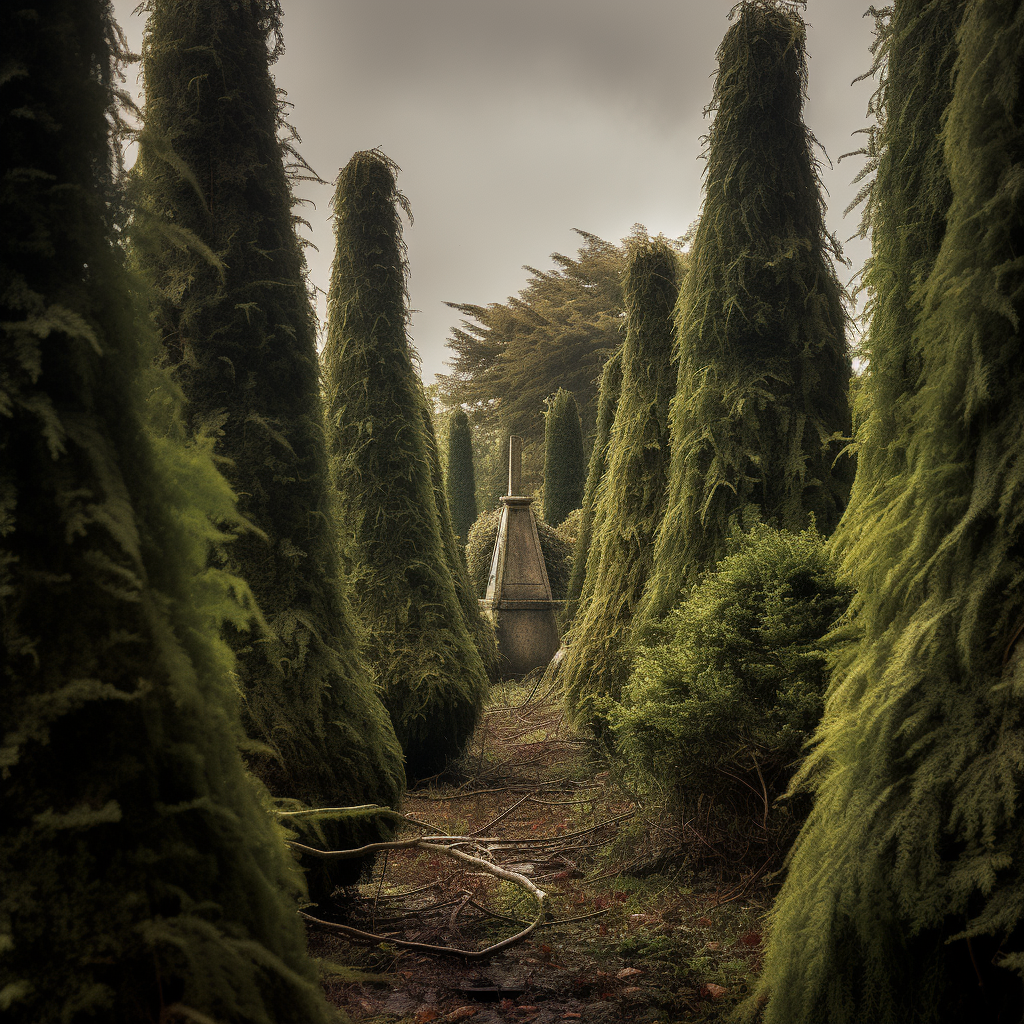
“Maybe you’re right, Marcin,” Anatol admitted, his eyes never leaving Dima’s. “We can’t play together because of the war.” Dima nodded in agreement, his eyes reflecting the same acceptance of the harsh truth.
Marcin let out a sigh, looking at the gap in the fence. “If we can’t play together,” he suggested, “maybe we can at least build together. We can’t ignore this hole, can we?” He gestured at the gap.
The other two boys nodded, the decision made. Dima spoke up, his voice firm despite the situation. “Sometimes, building walls is the only thing people can do together.”
With that profound observation hanging in the air, the boys then set to work, their hands moving with a strange finality. They didn’t have any mesh to rebuild the fence, but they did what they could with what they had. They gathered branches and leaves, constructing a barrier over the gap in the fence. Their task completed, they each retreated to their respective gardens.
Standing on their respective sides of the fence, the boys looked at each other, their faces etched with a shared melancholy. Anatol and Marcin on one side and Dima on the other, the physical divide between them a poignant echo of the larger divide tearing their countries apart.
“My dad told me Ukraine was once on our side,” Dima finally broke the silence, his eyes never leaving Anatol’s. “Now it looks like you are on the other side.”
Anatol paused before replying, the weight of Dima’s words hanging in the air between them. “Walls are easy to build,” he said quietly, his gaze lingering on the makeshift barrier, “but much more difficult to tear down.”
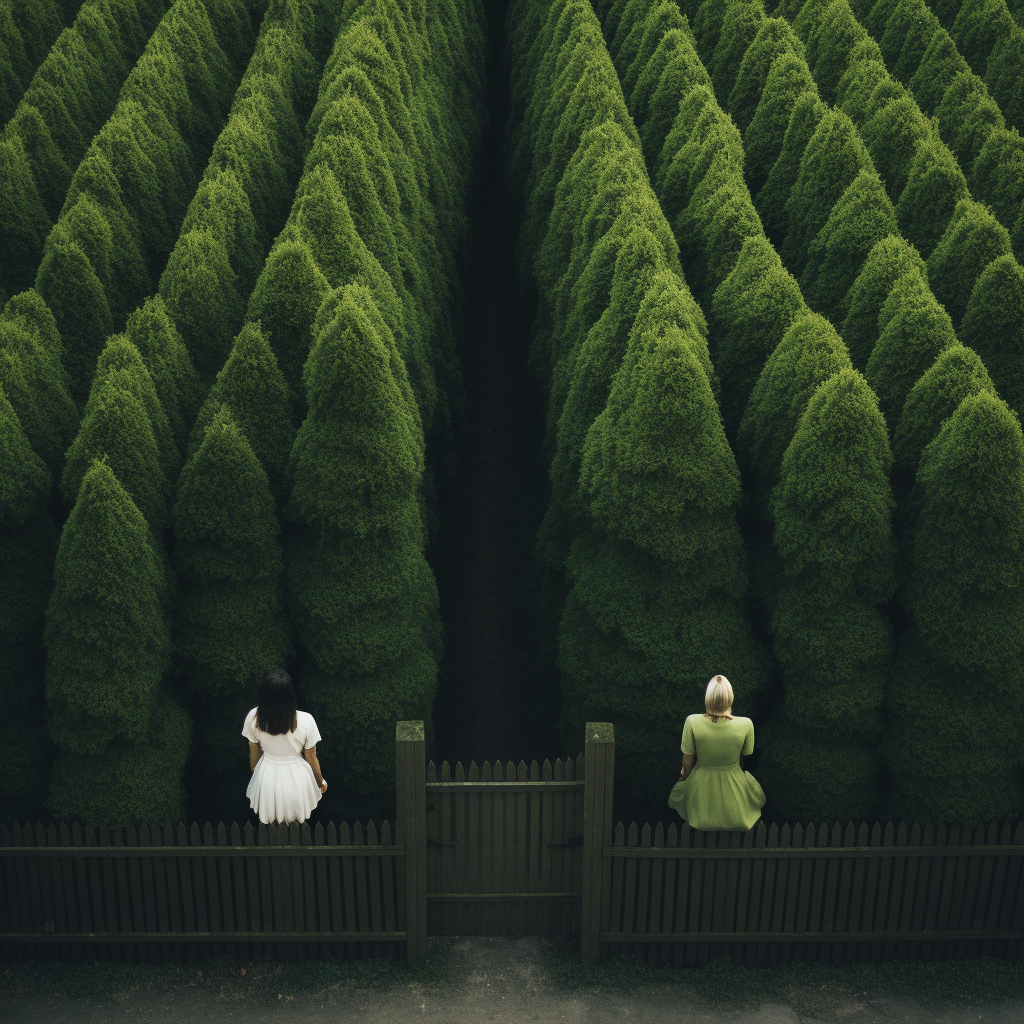
Marcin, standing next to Anatol, nodded in agreement. “We’re still very young,” he added, looking at both of his friends. “But now we all know where the secret gap in the fence is. Things might change in the adult world, and when they do, we can always come back to it.”
“Or when we become adults,” Dima countered, a hint of optimism in his voice that belied the heaviness of their situation.
With that, they parted ways, each returning to his own side of the fence, leaving behind their secret place hidden behind the thujas. The children, once again separated by barriers both physical and unseen, returned to the lavish solitude of their gardens, with the hope of a future where they might once again cross the divide.
Returning to their own garden, Anatol and Marcin found Yulia, their guardian in this strange land, engrossed in her own struggles. Her attention was split between anxious conversations with her husband, fighting on a battlefield miles away, and the clandestine eavesdropping of her neighbor’s discussions next door. Her isolation was further compounded by the impossibility of her ever speaking to the Russian woman in the adjacent garden, the weight of global politics creating invisible but impenetrable barriers even here, in their verdant retreat.
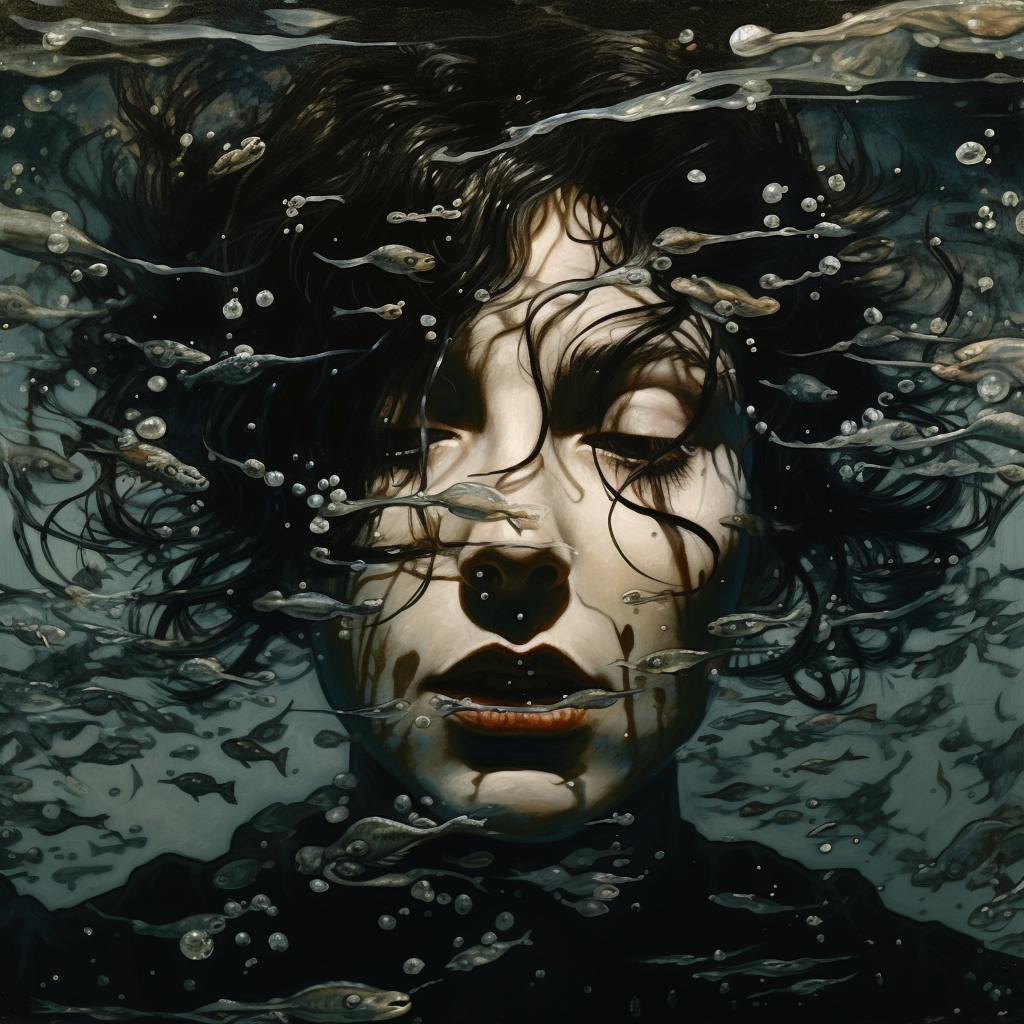
The adults, much like the children, were confined within their own worlds, caught in a tapestry of war, nostalgia, and displacement. Their narratives unfolded in parallel, occasionally overlapping but never quite converging, each reflecting the larger geopolitics at play in their private lives.
Awareness of their close-knit isolation permeated the lives of both children and adults. They were all acutely aware of who their neighbours were, residing on the other side of their fences. Yet, they all persisted in their pretenses, quietly yearning for better days and nurturing the hope for a future where their interactions wouldn’t be shackled by invisible barriers and unspoken rules.
For now, Yulia gazed at the verdant thujas that marked the division between them and the Russians, their thick green foliage serving as a stark reminder of the divide. “Time to water our garden, boys,” she announced, a hint of resolve in her voice. “We need to keep the thujas growing.”
All images generated using Midjourney
